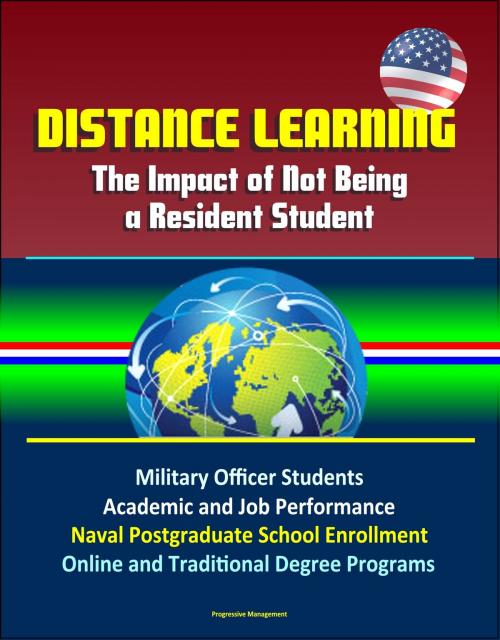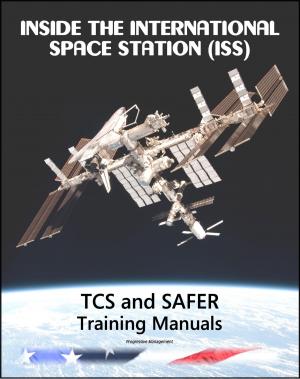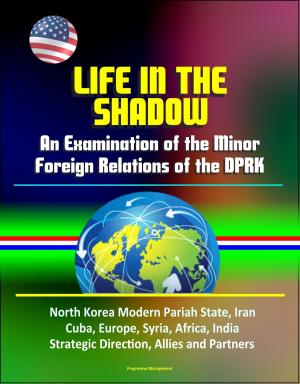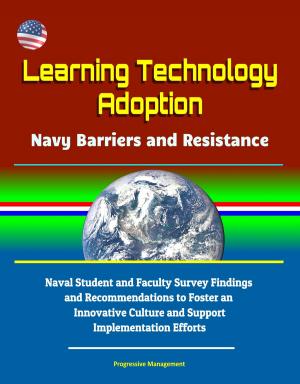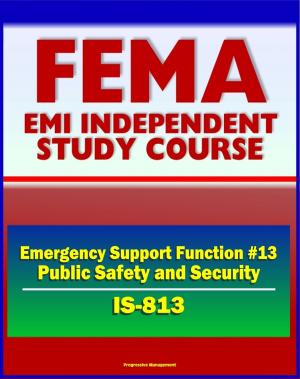Distance Learning: The Impact of Not Being a Resident Student - Military Officer Students, Academic and Job Performance, Naval Postgraduate School Enrollment, Online and Traditional Degree Programs
Nonfiction, Reference & Language, Education & Teaching, Teaching, Teaching Methods, History, Military, United States| Author: | Progressive Management | ISBN: | 9781370264674 |
| Publisher: | Progressive Management | Publication: | October 24, 2016 |
| Imprint: | Smashwords Edition | Language: | English |
| Author: | Progressive Management |
| ISBN: | 9781370264674 |
| Publisher: | Progressive Management |
| Publication: | October 24, 2016 |
| Imprint: | Smashwords Edition |
| Language: | English |
This excellent report has been professionally converted for accurate flowing-text e-book format reproduction. The existing literature suggests there are no significant outcome differences between online and traditional degree programs in the civilian sector. Few studies have looked for such differences within military schools and colleges, specifically. Given the growing popularity of online and distance education degree programs, we study the impact of this particular mode of instructional delivery on the academic and subsequent job performance of military officer students enrolled at the Naval Postgraduate School (NPS). Using propensity score matching, we estimate the effects that being a distance learning (DL) student has on four performance outcomes: grade point average, graduation, promotion, and separation. We further subdivide the sample into various subgroups based on military service branch, warfare community, academic preparation, and school within NPS to determine the heterogeneous effects of DL within each subsample. The DL students studied performed significantly worse than equivalent resident students on every measurement. We found NPS students enrolled in DL degree programs obtain GPAs approximately half a letter grade lower, are less likely to graduate, are less likely to promote, and are more likely to separate from military service than their NPS resident student counterparts. Given these results, it is imperative to conduct additional research to ascertain what makes distance learning inferior to residency at the Naval Postgraduate School.
CHAPTER I - INTRODUCTION * A. SCOPE OF THIS THESIS * B. RESEARCH QUESTIONS * C. ORGANIZATION OF THIS THESIS * CHAPTER II - LITERATURE REVIEW * A. META-ANALYSES * B. OBSERVATIONAL STUDIES * C. RANDOMIZED STUDIES * CHAPTER III - DATA/METHODOLOGY * A. NPS DATA * 1. Sample * 2. Independent Variables * a. Treatment Indicator * b. NPS Institutional Controls * c. Academic Preparation * d. Service and Community * 3. Dependent Variables * B. DMDC DATA * 1. Sample * 2. Independent Variables * 3. Dependent Variables * C. IPEDS DATA * 1. Sample * 2. Variables * D. DATA SUMMARY * E. METHODOLOGY * 1. Stage One * 2. Stage Two * CHAPTER IV - RESULTS * A. STAGE ONE * B. STAGE TWO * C. HETEROGENEITY * 1. Service * 2. Community * 3. Rank * 4. APC * 5. Sector * 6. School * CHAPTER V - SUMMARY AND CONCLUSIONS * A. SUMMARY * B. RECOMMENDATIONS
This excellent report has been professionally converted for accurate flowing-text e-book format reproduction. The existing literature suggests there are no significant outcome differences between online and traditional degree programs in the civilian sector. Few studies have looked for such differences within military schools and colleges, specifically. Given the growing popularity of online and distance education degree programs, we study the impact of this particular mode of instructional delivery on the academic and subsequent job performance of military officer students enrolled at the Naval Postgraduate School (NPS). Using propensity score matching, we estimate the effects that being a distance learning (DL) student has on four performance outcomes: grade point average, graduation, promotion, and separation. We further subdivide the sample into various subgroups based on military service branch, warfare community, academic preparation, and school within NPS to determine the heterogeneous effects of DL within each subsample. The DL students studied performed significantly worse than equivalent resident students on every measurement. We found NPS students enrolled in DL degree programs obtain GPAs approximately half a letter grade lower, are less likely to graduate, are less likely to promote, and are more likely to separate from military service than their NPS resident student counterparts. Given these results, it is imperative to conduct additional research to ascertain what makes distance learning inferior to residency at the Naval Postgraduate School.
CHAPTER I - INTRODUCTION * A. SCOPE OF THIS THESIS * B. RESEARCH QUESTIONS * C. ORGANIZATION OF THIS THESIS * CHAPTER II - LITERATURE REVIEW * A. META-ANALYSES * B. OBSERVATIONAL STUDIES * C. RANDOMIZED STUDIES * CHAPTER III - DATA/METHODOLOGY * A. NPS DATA * 1. Sample * 2. Independent Variables * a. Treatment Indicator * b. NPS Institutional Controls * c. Academic Preparation * d. Service and Community * 3. Dependent Variables * B. DMDC DATA * 1. Sample * 2. Independent Variables * 3. Dependent Variables * C. IPEDS DATA * 1. Sample * 2. Variables * D. DATA SUMMARY * E. METHODOLOGY * 1. Stage One * 2. Stage Two * CHAPTER IV - RESULTS * A. STAGE ONE * B. STAGE TWO * C. HETEROGENEITY * 1. Service * 2. Community * 3. Rank * 4. APC * 5. Sector * 6. School * CHAPTER V - SUMMARY AND CONCLUSIONS * A. SUMMARY * B. RECOMMENDATIONS
